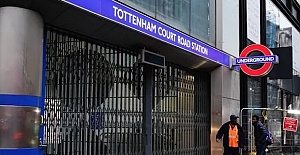HOUSE PRICES GROW SLOWLY IN MARCH. Higher mortgage rates affect affordability as the cost of buying a home strains budgets. Nationwide has reported a mixed picture of the housing market. On average, property prices increased 1.6% from March 2023, marking the quickest pace of growth since December 2022. However, a slight dip of 0.2% was observed in March compared to February, indicating the first monthly decline since December 2023. This fluctuation comes amid a backdrop of mortgage rates descending from their summertime highs but remaining significantly above the low levels post-pandemic. Despite these rates softening, the cost of buying a home continues to strain budgets. For an individual earning an average salary of around £35,000, mortgage repayments now consume nearly 40% of their take-home pay, underscoring the ongoing affordability challenges within the market.
January’s figures showed a 15% drop in mortgage approvals compared to the pre-pandemic era, reflecting the squeeze from elevated interest rates, which have reached a 16-year peak.
The Bank of England (BoE) recently kept the key interest rate steady at 5.25% but hinted at potential cuts, with financial forecasts anticipating a decrease to around 4.5% by year end.
Nationwide’s analysis, which excludes cash and buy-to-let transactions — accounting for a third of all sales — highlights the affordability pressures dampening market activity and price growth, despite a recent uptick.
STEALTH TAX FREEZE THREATENS INCOME OF PENSIONERS
1.6m additional retirees dragged into income tax levy. 8.5m currently paying income tax, up from 4.9m in 2010. New research for the House of Commons has shown that due to the income tax threshold freeze of £12,570 until 2028, an additional 1.6m pensioners will have to pay income tax in the next four years. This is a significant increase from the 8.5m pensioners currently paying income tax, up from about 4.9m in 2010. If the threshold had increased with inflation, it would have reached £15,220 this year and £15,990 by 2027/28. The Department for Work and Pensions reports there are 12.7m state pension recipients, with the Institute for Fiscal Studies noting over 60% now pay income tax, a rise from 50% in 2010.
The Resolution Foundation estimates that the tax threshold freeze will make the average tax-paying pensioner £1,000 poorer by 2027/28. Despite cutting national insurance (NI) by 2%, Chancellor Jeremy Hunt and Prime Minister Rishi Sunak’s aspiration to eliminate the tax has raised concerns that pensioners will bear the cost.Both parties have committed to maintaining the state pension triple lock, ensuring it increases annually by the highest of wage growth, inflation or 2.5%. This policy will result in an 8.5% rise in the state pension this month.
A Treasury spokesperson said: “Now the economy is turning a corner, we have cut national insurance by a third, meaning that – coupled with above-inflation increases to personal tax thresholds since 2010 – we have saved the average earner over £1,500 compared to what they otherwise would have paid.”
ADPL, ACCOUNTING DIRECT PLUS GLOBAL BUSINESS PARTNER
To schedule a meeting or to get more information, please don’t hesitate to contact ADPL 293 Green Lanes, London, N13 4XS
www.accountingdirectplus.com
+44 (0) 208 886 9222


 Enfield Labour welcomes new court order to stop antisocial behaviour in Edmonton Green
Enfield Labour welcomes new court order to stop antisocial behaviour in Edmonton Green David Lammy arrives in Downing Street after becoming deputy prime minister
David Lammy arrives in Downing Street after becoming deputy prime minister CTCA UK Condemns the Political Forcing Out of Afzal Khan MP for Engaging with Turkish Cypriots
CTCA UK Condemns the Political Forcing Out of Afzal Khan MP for Engaging with Turkish Cypriots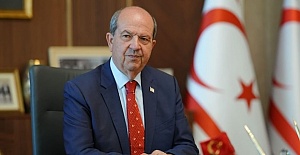 Tatar: “Reaction to MP’s TRNC visit is yet another stark example of the Greek Cypriot leadership’s primitive and domineering mentality”
Tatar: “Reaction to MP’s TRNC visit is yet another stark example of the Greek Cypriot leadership’s primitive and domineering mentality” 102nd Anniversary Celebration Ball of the Republic of Türkiye in London
102nd Anniversary Celebration Ball of the Republic of Türkiye in London Latest! Israeli navy intercepts Global Sumud Flotilla as it approaches Gaza to break siege
Latest! Israeli navy intercepts Global Sumud Flotilla as it approaches Gaza to break siege Enfield Labour Calls for Public Feedback on Crime and Safety Concerns
Enfield Labour Calls for Public Feedback on Crime and Safety Concerns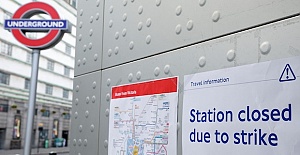 Important Travel Updates: London Underground and DLR Strike Action
Important Travel Updates: London Underground and DLR Strike Action Champions League, Liverpool lose at Galatasaray
Champions League, Liverpool lose at Galatasaray Liverpool flew out for their Champions League match against Galatasaray
Liverpool flew out for their Champions League match against Galatasaray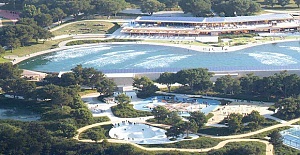 Enfield Council has approved plans for Surf London
Enfield Council has approved plans for Surf London Zlatan Ibrahimović receives UEFA President’s Award
Zlatan Ibrahimović receives UEFA President’s Award Maritime Finance and Sustainability Take Centre Stage at LISW25 Gala Dinner
Maritime Finance and Sustainability Take Centre Stage at LISW25 Gala Dinner London welcomes traders back to the reopened Seven Sisters Market
London welcomes traders back to the reopened Seven Sisters Market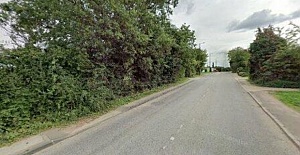 Enfield’s Crews Hill and Chase Park shortlisted for potential New Town
Enfield’s Crews Hill and Chase Park shortlisted for potential New Town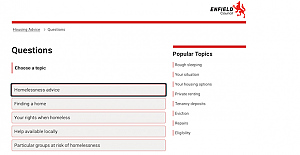 Important milestone achieved with no hotel placements for temporary accommodation
Important milestone achieved with no hotel placements for temporary accommodation






